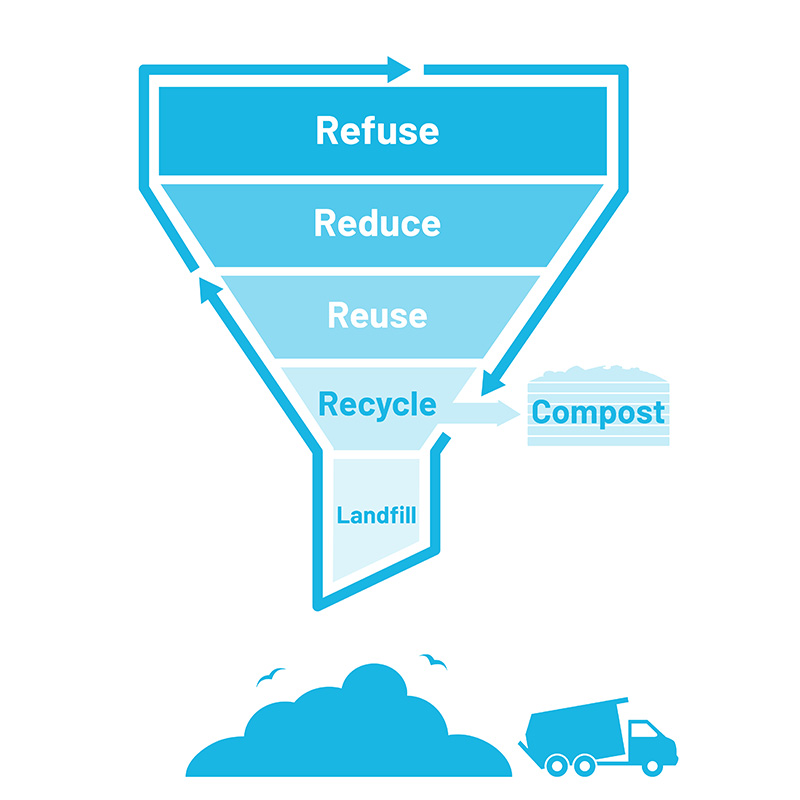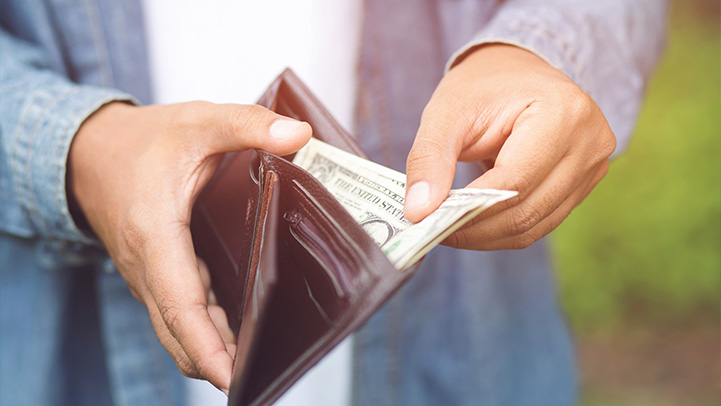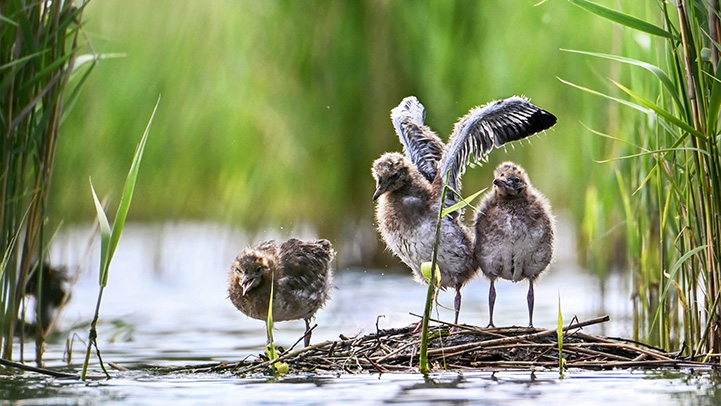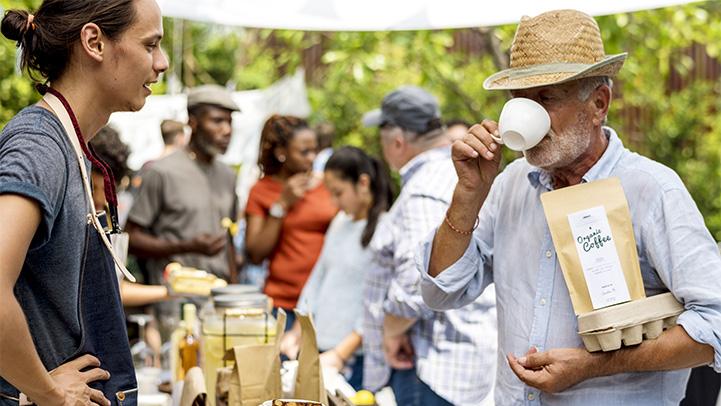Americans produce almost 200 million tons of trash each year—excluding green waste like food and yard trimmings. That’s over three pounds per adult per day. Only 35.6% of trash is recycled, mostly paper and cardboard. Single-use plastics make up 11% of what Americans throw away, but only 3% of what we recycle. Creating less waste in the first place by refusing, reducing, reusing, and repurposing unwanted items is the best solution—then recycle all you can.
In our fast-paced society, single-use plastic is a shortcut to convenience. From plastic bags and packaging to beverage bottles and to-go containers, single-use plastics are ubiquitous. Especially while dining and shopping, we’re offered plastic items we don’t really need or will only use once for a few minutes, compared to the centuries those plastics sit in a landfill or, worse, wind up in the environment. Stop plastic pollution at its source by saying no to single-use convenience plastics and making easy swaps for durable or compostable substitutes.
Reducing your trash begins with what you buy—and don’t buy. Borrow items you rarely use or buy them gently used. Donate or swap used items you no longer need. Buy new products that are made to last and learn to fix or restore them when they break. Look for creative and fun ways to have more for less, while reducing natural resource use, industrial pollution from manufacturing, and our mountain of trash.
Recycling cans, bottles, cardboard, and plastic is helpful for recovering materials that can be remanufactured, but recycling is not the perfect endless loop the logo suggests. The effective way to reduce your trash is to first reduce, reuse, repurpose, and restore what you can, then recycle all you can. Recycling right helps ensure the materials can actually be reused. We break it down to show you what goes where—what belongs in your curbside bin and what can be dropped off or mailed back.
Your food and plain paper waste isn’t trash! You can drop off your food waste or start your own backyard compost bin to generate “black gold” that feeds your landscape and garden.

“My mailbox had become such a wasteful chore of collecting junk mail and dropping it right into the recycle bin. Through trial and error and success, I found ways to opt out of the weekly flyers and offers. If you look at the fine print, many of them have a website or an 800 number you can use to opt out. Then I discovered there’s a way to exclude whole categories of junk mail like catalogues or credit card offers using DMAchoice.org. The website is easy— it takes less than 5 minutes to register and make your choices. The mail carrier loves how much less often she has to stop at my box!”
— Brooke Langston
Please tell us about your waste recovery success story. Here are a few questions to get you started: What changes are you making? Why? What has the process been like? What’s the impact? If selected, we will contact you for an interview to develop a feature story on the Green Living Toolkit.

Personal Benefits
Community Benefits

Reduced exposure to microplastics and industrial chemicals like bisphenols and phthalates that are especially harmful to children. Satisfaction in becoming more handy and self-reliant.

Reduced spending on throw-away consumer items and more investment in durable things.

Reduced greenhouse gas emissions and industrial pollution from manufacturing and landfills that causes air pollution, water pollution, global warming, and harm to wildlife. Less habitat damage from extraction and distribution of raw resources.

Community prosperity from a healthier environment. Stronger community connections from sharing and repurposing of trash to treasure. Local skilled jobs for repair and refurbishing used items. Reduced need for waste collection and landfills.
Mind if we stay in touch?
We'll send you our free Toolkit Quick Reference Guide.
We'll never spam you or share your info. Unsubscribe at any time.
This site protected by reCAPTCHA and the Google Privacy Policy and Term of Service apply.
©2024 Science and Environment Council of Southwest Florida | Site by Chariot.